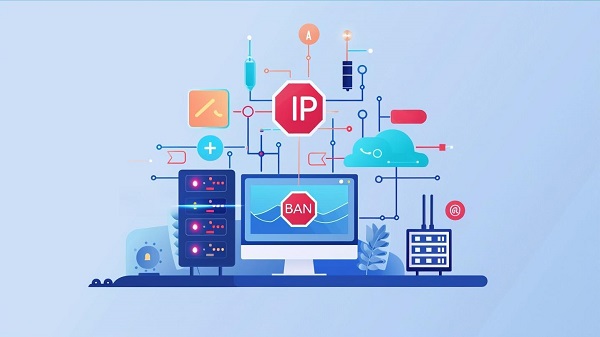Complete Step-by-Step Guide to Fix chrome-error://chromewebdata/#
Step-by-step fixes for chrome-error://chromewebdata/# covering browsing, debugging, and embedded browsers with commands and config examples.
Feb 21, 2026
Learn what IP bans are, why they happen, and step-by-step methods to bypass, resolve, and prevent them using a residential proxy.
Hitting an “IP ban” can feel like hitting a wall online. Whether you’re browsing, gaming, or scraping data, an IP ban cuts off your device until you change or hide your IP address. This guide walks you—step by step—through how IP bans work, how to confirm one, and the easiest ways a beginner can bypass, resolve, and prevent them.

An IP ban is a network-level block. It will deny all traffic from a specific IP address or range. Commonly used by websites and services to:
Unlike account bans, an IP ban completely cuts off your device until you change or hide your IP.
Rapid page loads, API calls, or form submissions (common in web scraping).
Failed logins, DDoS patterns, or spam messages.
Gaming cheats, forum TOS violations, or repeated content reposts.
Country-based blocks for licensing or legal compliance.
The server or Web-Application Firewall (WAF) tracks requests per IP; crossing a preset threshold triggers a ban.
The firewall or web server returns an HTTP 403 Forbidden or a custom “Your IP has been banned” page.
Bans can target a single IPv4, an entire CIDR range, or even IPv6 subnets.
Before trying to fix it, confirm you’re truly banned:
Connect via mobile tether or coffee shop Wi-Fi. If it works, your current IP is blocked like your home IP.
bash
curl -I https://example.com
A response of HTTP/1.1 403 Forbidden usually means you’re banned.
Use tools like “WhatIsMyIP” to rule out site-wide outages.
Below are the easiest methods for beginners:
Most home ISPs assign dynamic IPs—releasing and renewing yours can work.
1. Router Reboot
Disconnect the router’s power cable for about 30 seconds, then plug it back in and allow roughly 2 minutes for it to fully restart.
2. DHCP Renew
bash
ipconfig /release
ipconfig /renew
bash
sudo dhclient -r
sudo dhclient
Note: Success depends on your ISP’s lease policies; sometimes you’ll get the same IP back.
Choose a reliable residential proxy provider, like GoProxy. Real-home IPs help you bypass the ban effectively.
1. Sign Up and choose a residential plan according to your demand.
2. Obtain proxy information and configure Your Tool (browser, scraper):
For basic configuration, you can check our Configure Proxy on Different Devices and Systems.
If you need setup for scraping, please check our Complete Guide To Web Scraping Proxy.
3. Test by accessing the banned URL; If succeed, you should see legitimate content.
VPN apps (Windows/macOS/mobile) are extremely user-friendly but can be flagged if over-used.
Pros: Easy setup, encrypts traffic
Cons: VPN exit IPs are shared, and may get banned too
1. Download the Tor Browser and install it.
2. Browse through the Tor network.
Cons: Tor can be slow, and some sites actively block Tor exit nodes.
MAC-Address Spoofing: Only useful if the target also tracks device MACs.
Clear Cookies & Cache: Resets client-side identifiers but doesn’t change your IP.
If bypassing isn’t enough, you can try to get un-banned:
Submit a ticket or use the site’s “ban evasion” form.
Temporary bans often lift after minutes to days.
Run anti-virus scans; infections can cause malicious traffic.
Respect Rate Limits: Add a sleep(1) or longer between automated requests.
Use Official APIs: They’re designed for non-ban penalties and stable access.
Monitor IP Reputation: Services like Spamhaus alert you if your IP is blacklisted.
Rotate Proxies & User-Agents: Emulate human browsing patterns.
Q: How long do IP bans last?
A: From minutes to permanent. Dynamic IP users may auto-escape; static IPs require other methods.
Q: Can I combine VPN + Proxy?
A: Yes—VPN encrypts, proxy rotates IP. But added latency can slow requests.
Q: Will GoProxy work for gaming?
A: Absolutely—our residential IPs reduce ping spikes for gaming.
IP bans are a common, blunt security tool—but with these beginner-friendly steps, you can verify, bypass, and even prevent them in your everyday browsing, gaming, or scraping activities. For the simplest, most reliable solution, GoProxy’s residential proxies handle the technical heavy lifting so you don’t have to.
< Previous
Next >
 Cancel anytime
Cancel anytime No credit card required
No credit card required